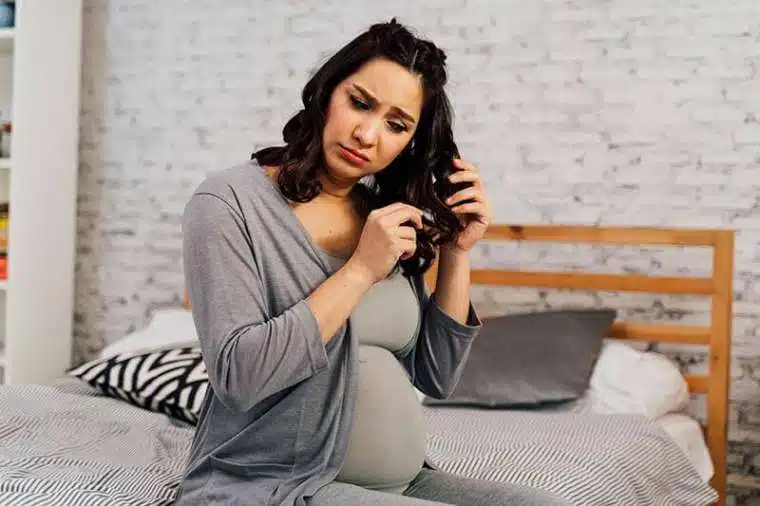Female Hair Loss and Hormones
Although baldness is more commonly associated with men, hair loss in women is far from being a rare phenomenon.
The psychological effects of such a condition are even more profound, as thick hair has traditionally been considered a symbol of femininity.
The causes of hair loss are many and varied. However, it has been proven that in a large percentage of cases, hair loss is linked to hormones.
When the hormonal balance in a woman’s body is disrupted, it is highly likely that hair loss will occur as a result.
Testosterone
Testosterone, typically associated with men, is also naturally produced in small amounts in a woman’s body.
It plays a key role in hair loss, as its derivative, dihydrotestosterone (DHT), is responsible for androgenetic alopecia.
Increased testosterone levels in women can lead to increased body hair growth—for example, on the face—while simultaneously causing hair thinning or loss on the scalp.
The Role of Estrogens
Estrogens protect hair from the degenerative effects of DHT, helping more hair remain in the anagen (growth) phase.
Recent studies suggest that the balance between estrogens and progesterone plays a crucial role in hair growth. Any imbalance can lead to hair degeneration and loss.
This explains why hair loss can result not only from a decrease in estrogen levels but also from their excessive increase.
An imbalance leading to excess estrogen can arise from various causes such as weight gain, endocrine disorders, or natural changes during menopause.
Periods in a Woman’s Life When Hair Loss May Occur
Postpartum Period
During pregnancy, both estrogen and progesterone levels are particularly high.
This results in a woman’s hair appearing healthier and fuller than ever before.
However, the abrupt drop in these hormone levels after childbirth can cause significant hair loss, as many hairs enter the telogen (resting) phase.
This condition may last from a few months to, in some cases, up to two years postpartum. It is, however, normal, and the hair lost during this period represents the “extra” growth during pregnancy.
Menopause
Hair loss is a common occurrence during menopause.
The levels of estrogen, which are primarily produced in the ovaries, decrease significantly. However, a small amount continues to be produced in other parts of the body.
What about progesterone?
Unlike estrogen, which remains available from alternative sources, progesterone levels drop to a much greater extent.
This disrupts the balance between the two hormones, potentially resulting in hair loss along with other menopausal symptoms.
Polycystic Ovary Syndrome (PCOS)
Another condition where hormonal imbalances occur in women is polycystic ovary syndrome.
For reasons not yet fully understood, the ovaries produce slightly more androgens than normal.
This may lead to increased body hair growth or hair loss on the scalp.
